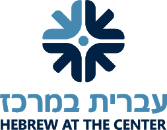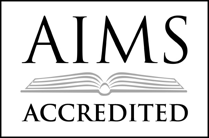Shana Tova from MILTON
September 18, 2020 by
As I write this to you, the next tab over is my Rosh Hashanah 5780 menu and shopping list. While we have been trying to rein ourselves in for years now, there’s still a long list of ‘must haves:’ one grandmother’s chicken soup, the brisket big enough for 20, a beloved aunt’s beloved apple cake, and sides that we ‘always have.’ And that’s just what’s on the nostalgia menu! We have also collected new food traditions in recent years, including indulging in a Rosh Hashanah seder with a platter of simanim (signs) that goes far beyond apples and honey. In some ways, considering where we are now, I’m haunted by 5780’s lengthy amalgamation of old and new holiday foods set out for a big crowd. In others, though, the much more intimate group liberates us to consider, discuss and discover what is truly essential to our Rosh Hashanah experience. The moment has come to curate the hagim (holidays), at least for now.
This rings true also for tefilah (prayer). Jewish spiritual leaders have been working overtime to distill an accumulated liturgy into services doable outdoors in fickle weather, on Zoom before the fatigue sets in, by individuals and families, or in short recorded soundbites. How do we choose what is essential? How do we set priorities when time and (literal and figurative) bandwidth are limited?
To try to answer this – both personally and professionally – I have turned to some material that I have taught most falls for the last decade. I always launched my Hebrew College ‘Teaching Jewish History’ course by introducing the juxtaposition between coverage and uncoverage. While much of history (and other) education has been characterized by scrambling to ‘cover’ a time period or a textbook, research shows us that the thread connecting effective history teachers is actually an orientation toward uncoverage. Uncoverage emphasizes the power of student discovery, the unpacking of primary sources, and the making of connections text-to-text and text-to-self.
Uncoverage is harder. It requires more preparation on behalf of the teacher and more intellectual and emotional investment from the student. But the reward is great. It looks like synapses firing, ‘aha’ moments, academic memories that return to bear fruit again and again, relationships forged between hevruta partners, and a depth of connection to the subject because the student is discovering it themselves, not simply being fed someone else’s revelation. In their well-known guide to Understanding by Design, the authors call this “the revealing and powerful fruit of pondering, testing, shaping, and rethinking of experience.”
On Rosh Hashanah, the time of year when fruits symbolize the sweetness and growth of the year to come, what if we prioritized uncoverage over coverage? We might try curating a lighter menu but digging deeper into the family stories behind the chosen dishes, perhaps calling an isolated relative who can share the roots of one particular tradition. What could this allow us to uncover about our family history or our relationship to food? How about diving deep each day into a piyyut (poem) from the liturgy that you have ‘known’ your whole life (or just learned about) but in which you haven’t yet found meaning? Could this inform your relationship to the text or even to god? Or the person you might study it with?
This Rosh Hashanah and through all of 5781 – as we encounter this most challenging episode in so many of our lives – I hope that each of us can let go of some of what we’re doing just because we’ve always done it or because we’re ‘supposed’ to cover it. Let us find ways to uncover the hidden but unique gifts of this time, dive deep into texts that have the power to change us, connect with community in creative ways, and discover the deepest wells of resilience. Next year, we can always go back to covering the usuals . . . though perhaps by then we will have uncovered parts of ourselves that push us toward new traditions that suit who we have become and who we want to become.
May it be a sweet, discovery-filled and, most importantly, healthy 5781!
Deborah






